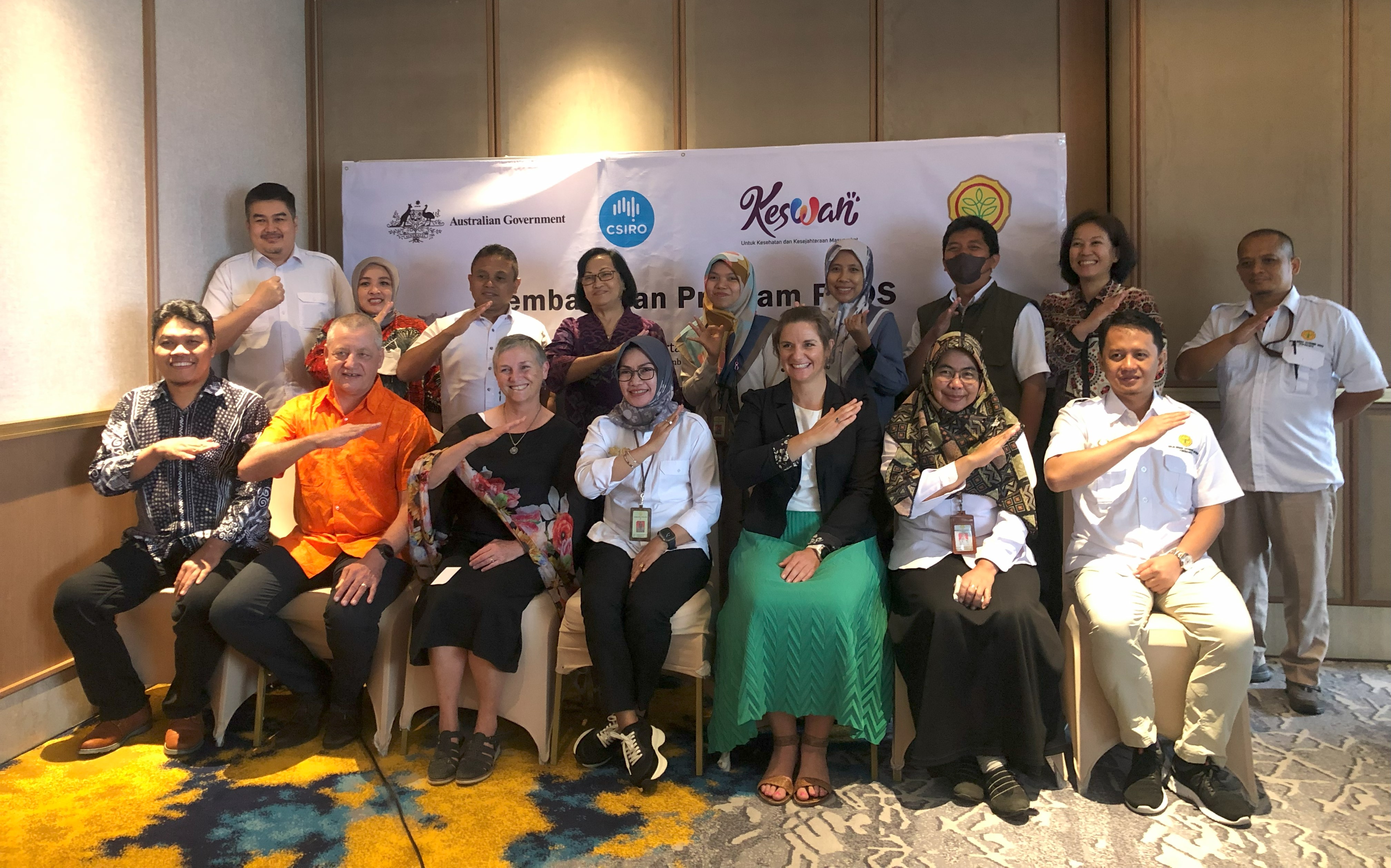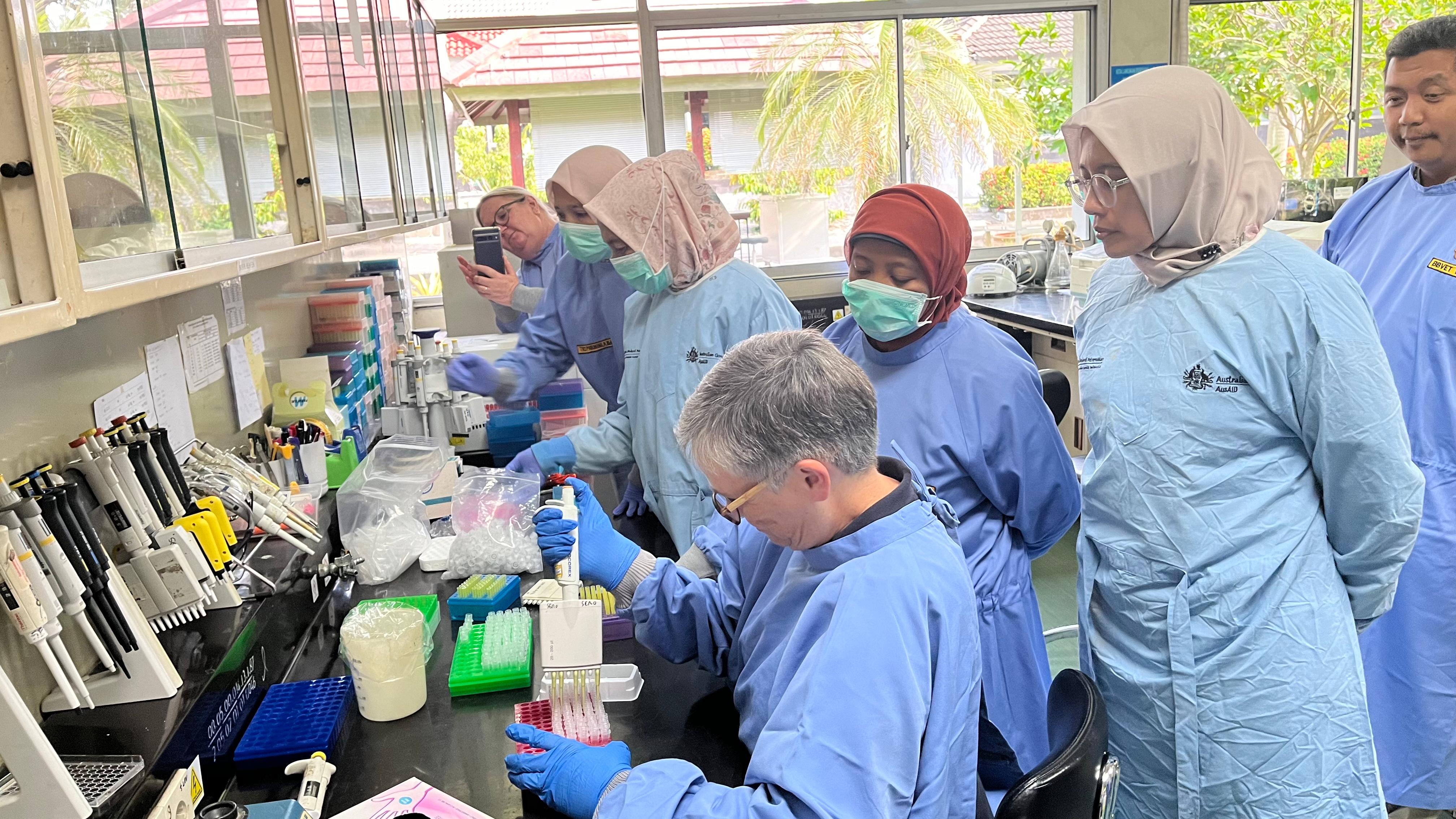In 2022, Indonesia reported outbreaks of two diseases of livestock. Lumpy skin disease had been spreading rapidly throughout south Asia during 2021, and in March 2022, Indonesia reported cases of lumpy skin disease on the island of Sumatra.
Just two months later, in May 2022, a foot-and-mouth disease outbreak was reported in cattle in Indonesia.
Foot-and-mouth and Lumpy skin diseases
Foot-and-mouth disease (FMD) is a highly contagious animal disease that affects cloven hoofed animals, including cattle, buffalo, sheep, goats, pigs, deer, camels, llamas and alpacas.
Lumpy skin disease is a viral disease of cattle and water buffalo with significant economic impacts.
Fortunately, Australia is free from both diseases. One of our best defences against outbreaks of exotic animal diseases here is to provide ongoing support to neighbouring countries. We can help strengthen their capabilities to prevent, detect and respond to disease outbreaks rapidly and effectively.
Regional Emerging Disease Support project
The Regional Emerging Disease Support (REDS) project has been established as part of the Australian Government's assistance to Indonesia following the outbreaks of FMD and LSD. The project is funded by the Australian Department of Agriculture, Fisheries and Forestry.

The REDS project is being led by our Australian Centre for Disease Preparedness’s International Program. It aims to strengthen diagnostic capability in Indonesia’s diagnostic and quarantine laboratory networks.
Our scientists work with the responsible national reference laboratories of Indonesia to implement external quality assurance programs for both foot-and-mouth disease and lumpy skin disease.

The national reference laboratories will then be able to apply these quality assurance programs across the broader Indonesian veterinary and quarantine laboratory networks with the aim of improving quality assurance for diagnostic testing and disease control.
In 2022, Indonesia reported outbreaks of two diseases of livestock. Lumpy skin disease had been spreading rapidly throughout south Asia during 2021, and in March 2022, Indonesia reported cases of lumpy skin disease on the island of Sumatra.
Just two months later, in May 2022, a foot-and-mouth disease outbreak was reported in cattle in Indonesia.
Foot-and-mouth and Lumpy skin diseases
Foot-and-mouth disease (FMD) is a highly contagious animal disease that affects cloven hoofed animals, including cattle, buffalo, sheep, goats, pigs, deer, camels, llamas and alpacas.
Lumpy skin disease is a viral disease of cattle and water buffalo with significant economic impacts.
Fortunately, Australia is free from both diseases. One of our best defences against outbreaks of exotic animal diseases here is to provide ongoing support to neighbouring countries. We can help strengthen their capabilities to prevent, detect and respond to disease outbreaks rapidly and effectively.
Regional Emerging Disease Support project
The Regional Emerging Disease Support (REDS) project has been established as part of the Australian Government's assistance to Indonesia following the outbreaks of FMD and LSD. The project is funded by the Australian Department of Agriculture, Fisheries and Forestry.
The REDS project is being led by our Australian Centre for Disease Preparedness’s International Program. It aims to strengthen diagnostic capability in Indonesia’s diagnostic and quarantine laboratory networks.
Our scientists work with the responsible national reference laboratories of Indonesia to implement external quality assurance programs for both foot-and-mouth disease and lumpy skin disease.
The national reference laboratories will then be able to apply these quality assurance programs across the broader Indonesian veterinary and quarantine laboratory networks with the aim of improving quality assurance for diagnostic testing and disease control.
